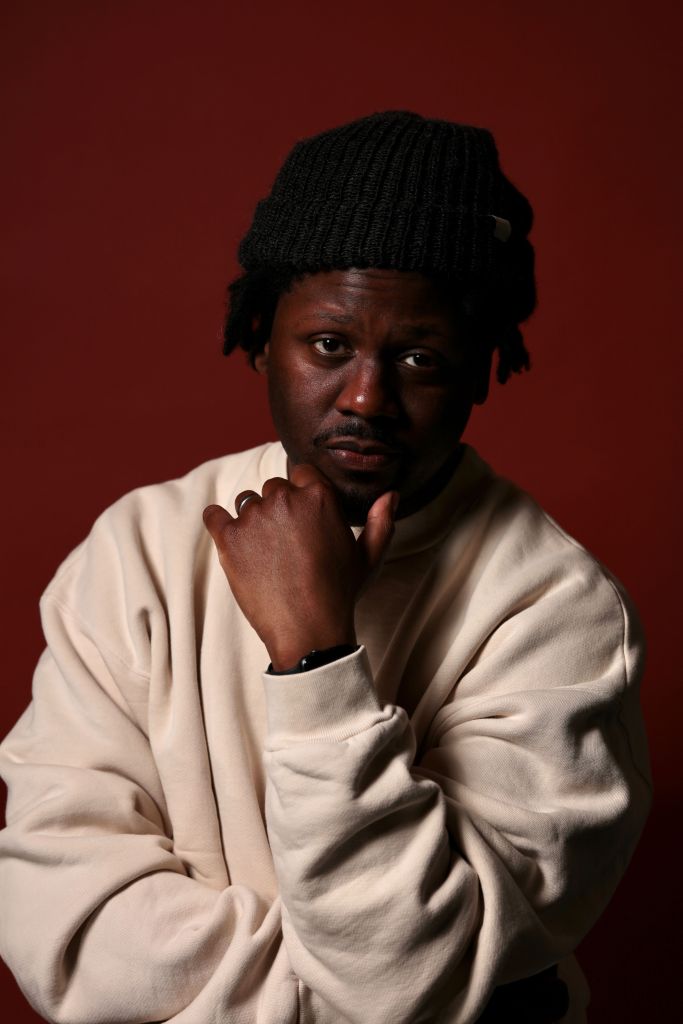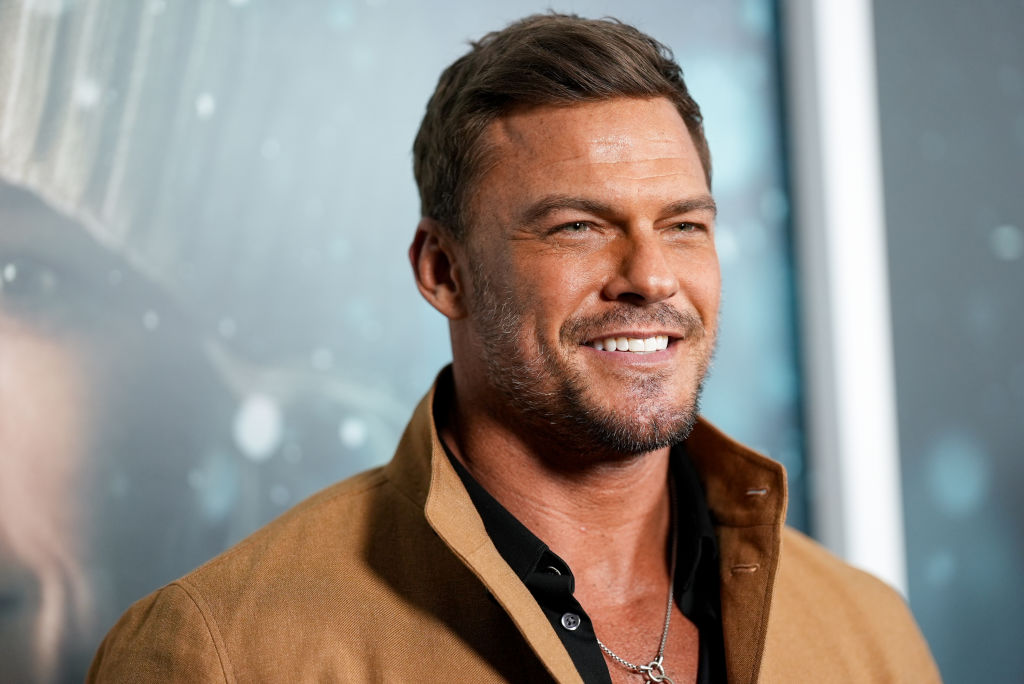
Source: Justin “J3” Jerrod
Bobby Carter, a.k.a. DJ Cuzzin B, has one of the most important yet “under the radar” gigs at the esteemed National Public Radio (NPR). The St. Louis, MO native currently serves as producer of the organization’s popular series, “Tiny Desk Concerts.”
Carter first became a part of NPR by landing a three-month internship right after graduating from Jackson State University in 2000. He then parlayed that opportunity into a second internship and eventually became their digital media engineer. Now, he’s two decades-plus deep into his career at the station.
This past June, Carter assembled another usual powerhouse roster of artists to celebrate this year’s Black Music Month, including Monica, FKA Twigs, Naira Marley, Usher, and many more. Read on to find out what else lies in store for NPR Music through the rest of the year, Carter’s two dream Tiny Desk performers, what makes Usher “that dude,” and why he believes Black Music Month continues to remain important even in 2022.
CASSIUSLife: What was your curation process regarding the list of artists you selected for this year’s Black History Month with NPR?
Bobby Carter: Well, the goal was to highlight the diversity within Black music. When you’re talking about Black Music Month, that’s such a wide net to cast. And most people may think of hip hop and R&B, or jazz. But Black music has grown so much that there are subcultures within the culture.
Like, there isn’t just one type of rapper. There isn’t just one type of singer. There’s not one jazz musician. There are so many facets to so many different artists. So the idea is to showcase that and highlight how diverse and beautiful the range of Black music is in 2022.
You can look at someone like Ravyn Lenae and then at Monica. Yes, they’re both Black women who sing, but they do totally different things. The same goes for Denzel Curry and Larry June. They’re both emcees, but they deliver two different sides of the spectrum.
CASSIUSLife: A little more than a year ago, you talked about how to create the perfect playlist with NPR’s “Life Kit.” So based on who’s already come up [for your Tiny Desk takeover for Black Music Month] and who’s yet to come, I’m interested in that part you call “the flight,” especially when the plane takes off and the trajectory of that path.
How did you pick who would be part of the takeoff and who would be “up in the sky?” Who’s going to be part of the landing?
Bobby Carter: Well, we started with Adekunle Gold, and I figured that would be a great starting point, even though I wouldn’t exactly call that takeoff. But in a sense, I would call it a takeoff because if you look at the Adekunle Gold show because his set design was all about an airline flight.
[From] there, that’s the obvious place to start because you’re beginning your ascent. When I talked to them, and they told me what their idea was going to be for the shoot, I figured that would be the perfect start to the journey. When you think about that, if you’ve seen that show, that’s a pretty fast ascent up to where we need to be.
There are not many artists who are in the “landing phase” because we’re ending with Usher. We wanted to start strong and close out strong.
And I think this particular journey, as it pertains to the playlist style, is a bit different from what I would do if I was DJing a party. I like to sort of ramp up, start slow, and get people going here. So with the A.G. show, we kicked in the door pretty hard and just kept that energy going. And [then] with Usher, it’s just like an explosion. So everybody carried the energy and just passed the baton and kept the energy going.
I’m pretty sure this interview will be out once Usher drops. But when you see that show, you’ll know what I mean by ending strong because he’s that dude.
CASSIUSLife: When are we going to finally get that Anita Baker show?
Bobby Carter: This Anita Baker journey is turning into everything but the show. It’s becoming folklore for sure. But the more eyeballs, the more awareness that could be put out there that the Tiny Desk is here for her, and we’re ready to set the plate whenever she’s ready to pull up and eat, it’s out there.
She’s been busy. But I’m still pushing, man. Her team is very aware that she is my top priority in terms of Tiny Desk gets. I told them I would move whatever mountains needed to make way. So Queen Anita Baker, if you’re reading this, come on home. [laughs]
But I’m not giving up hope. As long as my badge still works at NPR, I will continue to pine for her presence at the desk. Her and Sade. Let’s not leave out Sade. It would never be the same. I’d have nothing else to prove.
CASSIUSLife: So how do you feel now with Tiny Desk returning to a live in-person format? We’re coming off of artists doing it at home because of the pandemic. But do you feel like it’s business as usual? Or do you think that we live in a world where, even though we’re going back to the in-person format, the vibe has to change?
Bobby Carter: I’m glad that we’re back. I think the timing is just right. Our audience is very smart, and they know what to expect out of us. We read all of the comments, [the] feedback, the tweets. We see everything that’s going on, and we want to continue to deliver in the best way we can.
Not to say that the Tiny Desk home concerts have run their course, but I think that people were just ready to see their favorite artists, or artists that they’ve never heard of, back behind the real desk. There’s just something about that space. Just being back in that space, I’m reminded of the feeling that you get when you’re two to three feet away from an artist that you adore, and [you’re] just getting that intimate feeling back.
I think a lot [the real challenge] we’ve seen at times, for the home concerts, was maintaining that intimacy. Some of the home shows sometimes felt a little too big, and our audience knows. Like, we’ve had a couple here and there, without saying any names, where our viewers will say, “This doesn’t feel like Tiny Desk.” And we’re very aware of that.
So it’s really gratifying to be able to deliver that feel of a Tiny Desk again because there’s no space like it. When you see Usher later on this week… We’ve seen him on stages across the world, at festivals, you name it. But to see him shrink it down into that little corner, he’s delivered something that we’ve never, ever seen before in his over 25-year career.
CASSIUSLife: I feel like, as Black people, we’re part of everything, right? And whether it’s Black Music Month in June or Black History Month in February, it seems as if there’s a dedicated time to remember our contributions to the culture when that’s something we’ve done every day.
Do you think there’ll ever be a day, at least in America, where everybody fully accepts black music as just music?
Bobby Carter: Yeah, I hope so. If I’m being honest, I don’t know if there will ever be a time when we don’t have to be so intentional as to say, “This is why we matter.” But I don’t know — I remain hopeful.
But when you look at and listen to the feedback and reaction from what we’ve been doing with Black Music Month, Black History Month, Hispanic Heritage Month, whatever have you, 90% is positive. People are very happy to see that we are curating with much more intent.
Like you said, we’re a part of everything, and a lot of music and pop culture has “borrowed” from Black culture.
There are still people out there who, for some reason, won’t give these artists the respect they deserve. Like someone like Usher. He belongs in the pantheon with all of the greats. He’s transcended R&B and even pop music. So names like his belong up there with the greats everywhere.
In a perfect world, we would curate the music and cover it all evenly.
But I know from what I hear, and what I experience, Black music still doesn’t get the respect it deserves. It’s still sort of pushed to the side by certain groups as not art, not being real talent. And as long as I’m in this space, I’m going to continue to advocate for this art form for these artists because it’s still necessary.
CASSIUSLife: NPR and Tiny Desk are headquartered in DC. And when you look at everything that’s happening in the nation’s capital, because there was time to curate this, there’s been a lot going on in DC. We’re talking about everything from the last election to the uprising, and we have what happened last week [with the overturn of Roe v. Wade].
How did those things influence the creation of this year’s list? But also, what do you think is the importance of the artists we have this year in light of what’s going on?
Bobby Carter: I think that, especially right now, where we sit in history, and just looking back on the past couple of years and our lives, I think a lot has changed. I think that things in the past that were considered just extracurricular activities are now considered necessities, [like] taking time off, music, recreational activities, breaks. There’s been a lot of discussion about the importance of mental health.
I’ve been at NPR for a long, long time. I feel like what we do is just sort of icing on the cake. We just deliver performances to the masses. We aren’t saving the world, but we’re helping people heal. We got so much of that throughout the pandemic. So many [people saying], “These Tiny Desk Concerts kept me alive throughout this time when I was going through X, Y and Z, I can always hop on YouTube and just run down this rabbit hole.”
I think that with everything that’s going on in the world, what we do at Tiny Desk is provide a contrast, and for at least 15 minutes, people can tune out.
Obviously, NPR Music is a part of NPR, where we deliver news. And a lot of what’s dominating the news cycle right now is bad news. So in our little corner of the building, we provide a little bit of contrast to say, “You should break away from that for a while. Here’s something to make you smile. Here’s something to make you forget about it for just a moment so that you can survive.”
CASSIUSLife: I’m going to interject a little bit and just say I think music does save the world. I think art saves the world, in terms of allowing expression. And that doesn’t mean that everybody has to produce art the same way.
For some people, it could be [as] an architect. For others, it could be [as] a poet. And then for others, it could be [as] a DJ or singer. But even when you think about Black history and the importance of [something like] Gospel music and spirituals and how people have connected over that.
[I think] music has [always] been part of human civilization. If it didn’t matter, then you wouldn’t have people still singing, “We Shall Overcome.” It’s the connection. And I think to me, that hugely saves the world.
Bobby Carter: Yeah, it’s an emotional connection. And we have artists [for whom] a lot of their art deals in protest, and a lot of artists who speak directly to issues. But the people who are just as important [are those] who just express themselves freely, expressing joy, expressing themselves in a party environment.
Every artist sort of serves a purpose, and we’re not looking for every artist to speak directly to social issues. Some of these artists are an escape from that world because, if it hasn’t been proven over the past couple of years, everyone’s yearning for an escape.
Maverick City Music was in the building a couple of weeks ago with Kirk Franklin. I really had to control my emotions because gospel music just pulls out such an emotion for me. So it’s just a real honor to be able to kind of get these artists and present these artists to the world in such a unique way.
CASSIUSLife: As you wrap up Black Music Month at Tiny Desk, what can we look forward to from you for the rest of the year? And when are we actually going to see DJ Cuzzin B back on the ones-and-twos?
Bobby Carter: I’m already back on the ones-and-twos. I wouldn’t consider myself outside yet, but I’m dipping my toe back out in the water. We’ve been able to do it virtually for as long as we have been, and that really has sort of fed me in a lot of different ways. But [there’s] nothing like playing music and spinning records with a crowd right there, filling that energy and just being in that energy exchange.
For NPR Music, we have a road map with some super exciting brand new things coming up for the rest of the summer and fall. We have something really cool coming up this fall that we’ve never done before, so be on the lookout for that. And we’ll continue to just push out these shows, and hopefully we can also put you up onto something, because nothing makes me more excited than when we’re able to show an artist at the Tiny Desk that no one has ever heard of and people become instant fans.
So for now, creating more “I didn’t expect that from NPR” moments — that’s what I’m on.

















